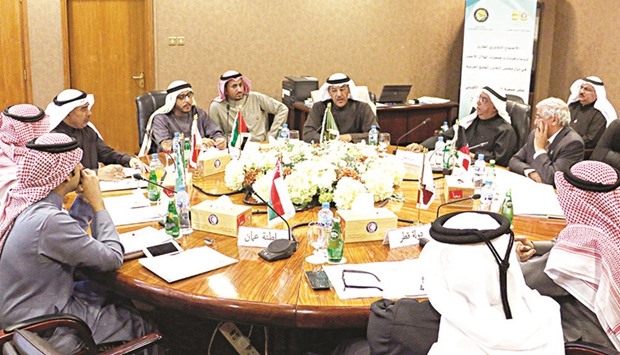Qatar Red Crescent Society (QRCS) has participated in a high-profile meeting of top officials of Red Crescent societies of the Co-operation Council for the Arab States of the Gulf (GCC), held in Kuwait to discuss the situation in Aleppo, Syria, and co-ordinate humanitarian interventions to avoid duplication of work.
The extraordinary meeting decided to send a joint field delegation of volunteers to deliver aid to the victims, as well as conduct shared projects for the benefit of affected communities, according to a press statement.
As humanitarian conditions are worsening in Syrian territories, especially in light of the recent escalation and subsequent huge casualties, the GCC Red Crescent societies are intensifying and broadening the scope of efforts to secure aid for as many victims as possible, the statement notes.
The representatives of GCC national societies expressed deep concern over the current humanitarian crisis, calling upon the international community to work hard to ensure the safe and urgent delivery of aid to, and evacuation of, the injured and beleaguered in war zones, especially vulnerable groups such as children, women, the elderly and people with special needs, who can hardly find the slightest provisions.
They declared support of efforts by international humanitarian organisations, appealing to all parties to respect the provisions of the International Humanitarian Law regarding protection of civilians in conflict zones, ensure uninterrupted delivery of aid and allow for humanitarian services under international conventions that stipulate legal protection for emblem holders.
Dr Abdullatif bin Rashid al-Zayani, secretary-general of the GCC, commended the significant role played by the Gulf Red Crescent societies towards the Syrian people in Aleppo.
He thanked the participants of the meeting, called for by Dr Hilal Mussaed al-Sayer, president of Kuwait Red Crescent Society (KRCS), to consider possible ways of helping the distressed people of Aleppo.
Dr al-Zayani described the mechanism adopted by the Aid Co-ordination Committee as effective, as it gives priority to the maximum mobilisation of resources to help the displaced Syrians, based on a needs assessment.
“Humanitarian corridors are much needed. There must be some way to stop the bloodshed and the destruction of houses, hospitals, power stations and infrastructure. The victims are in dire need of food, medication and shelter. The situation is tragic,” the secretary-general noted.
According to him, Gulf leaders pay great attention to humanitarian action to help the civilian victims of war, encourage voluntary work in the service of humanity and emphasise the necessity of treating the displaced Syrians in a dignified way.
On the sidelines of the meeting, QRCS and KRCS signed a couple of agreements to provide $200,000 worth of food aid at the destinations of displaced Syrians in Aleppo.

The meeting in progress.
